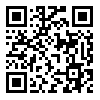Fri, Feb 20, 2026
| فارسی
Volume 15, Issue 2 (12-2020)
bjcp 2020, 15(2): 49-63 |
Back to browse issues page
1- Department of Psychology, Education and Psychology College, University of Isfahan, Isfahan, Iran
2- Professor of Department of Psychology, Education and Psychology College, University of Isfahan, Isfahan, Iran ,dr.oreyzi@edu.ui.ac.ir
2- Professor of Department of Psychology, Education and Psychology College, University of Isfahan, Isfahan, Iran ,
Abstract: (3047 Views)
In the assessment center (AC) process, assessors evaluate job-related behavioral skills in the participant in the simulated exercises. Interpersonal interactions are the mainstay of many assessment center exercises. Nevertheless, little is known about how these interactions unfold and affect participant behavior. Interpersonal interactions could vary in a range of control to emotional affiliation, and due to these two dimensions, individuals use relationship building and directive communication. For this reason, the present study examines the influence of control and affiliation variables in developmental center exercises on relationship building and directive communication among participants. Participants were 94 graduate students of management and psychology who were measured in the role-playing practice in the assessment center and there were 12 evaluators. Research intervention includes eight designed scenarios for low and high control in which guidelines for affiliation were given to two role players. Leader Behavior Description (1384/2004) questionnaire was used to measure relationship building and direct communication. The results of hierarchical regression indicate that in the exercises that cause low affection, relationship building behavior is more evident, the same is true for low control guidelines in scenarios that cause more directive communication behaviors. The current study sought to account for the interaction of person and situation in AC exercises and at a practical level, this study provided valuable evidence-based guidance for developing more effective interpersonal simulations.
Article number: 4
Type of Study: Research |
Subject:
Special
Received: 2021/05/13 | Revised: 2022/11/22 | Accepted: 2022/06/28 | ePublished ahead of print: 2022/06/28 | Published: 2022/11/19
Received: 2021/05/13 | Revised: 2022/11/22 | Accepted: 2022/06/28 | ePublished ahead of print: 2022/06/28 | Published: 2022/11/19
Send email to the article author
| Rights and permissions | |
 |
This work is licensed under a Creative Commons Attribution-NonCommercial 4.0 International License. |





